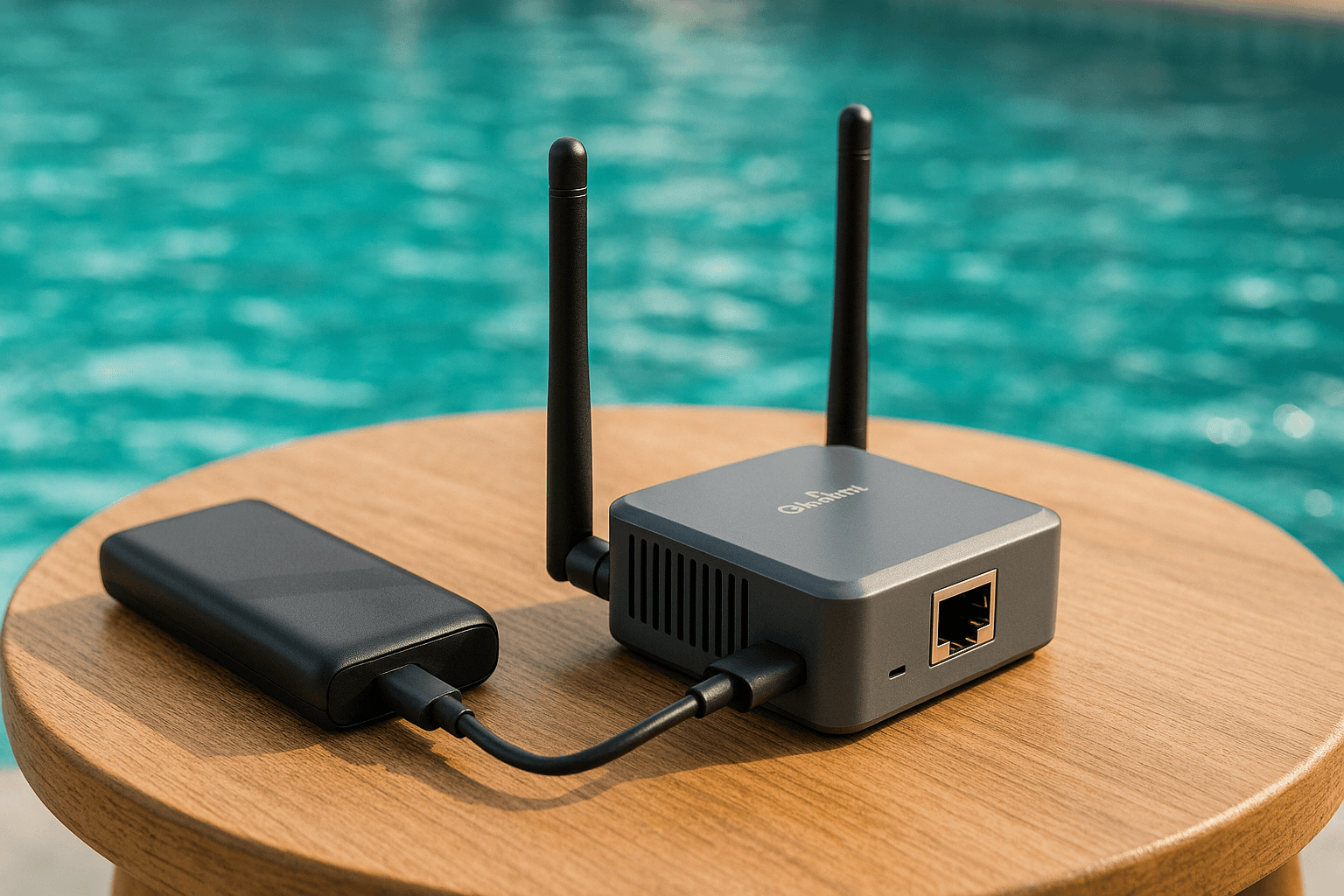Physical Address
College House, 2nd Floor, 17 King Edwards Road, London, HA4 7AE
Physical Address
College House, 2nd Floor, 17 King Edwards Road, London, HA4 7AE

Can you freelance in cybersecurity? From job opportunities to getting started and the tools you’ll need, we’ve got all the information in one enlightening article.
This shortage of cybersecurity professionals is a growing concern for organizations of all sizes. The 2022 Cybersecurity Workforce Study highlights the increasing demand for trained experts in this field, with an estimated 700,000 unfilled cybersecurity jobs in the United States alone.
TL;DR: Yes, you can freelance in cybersecurity. Many professionals choose to work independently in this field, offering their expertise in identifying vulnerabilities and implementing security measures. The job provides flexibility and the potential for a higher income, but it also presents challenges such as finding consistent clients and staying current with the latest technologies.

Cybersecurity is the practice of safeguarding computers, servers, mobile devices, electronic systems, networks, and data from digital attacks, unauthorized access, theft, damage, or any other security breaches. It involves implementing measures and technologies to ensure the confidentiality, integrity, and availability of information and systems
The primary focus of cybersecurity is to protect digital assets from various threats, including malware, hacking, phishing, ransomware, social engineering, and other cyberattacks. It encompasses a range of strategies, including network security, application security, endpoint security, data protection, encryption, identity and access management, and incident response.
Absolutely! Many professionals choose to work as freelance cybersecurity experts. As a freelance cybersecurity consultant or analyst, you can offer your expertise in identifying vulnerabilities, implementing security measures, and providing advice on information security.
By working independently, freelancers can choose their projects and clients while still contributing to the vital task of safeguarding digital systems.
There are both benefits and drawbacks you need to consider.
On the positive side, freelancing allows you to choose your projects and work schedule. Additionally, as a freelancer in this field, you have the potential to earn a higher income compared to traditional employment.
However, it’s essential to note that freelancing also presents challenges, such as the need for self-motivation and staying up-to-date with the latest trends and technologies to remain competitive.
As a freelancer, you’ll enjoy its flexibility and autonomy. You can choose your projects and work on your own terms.
Here are some benefits of freelancing:
Freelancing offers an exciting and rewarding career path for individuals seeking autonomy and variety in their work.
One potential drawback is finding consistent and reliable clients, which can be challenging. In the cybersecurity field, there is a high demand for professionals with expertise in protecting against cyber threats and preventing security breaches. However, you may face difficulties securing long-term projects or contracts as a freelancer.
Cybersecurity analyst jobs and cybersecurity consultants often require extensive work experience and specialized skills, making it competitive to attract clients. Additionally, some clients may prefer to hire individuals with specific cybersecurity certifications, which could limit your opportunities if you don’t possess these credentials.
It’s crucial to continuously update your knowledge and skills in this rapidly evolving field.
First, as a security consultant, you would work with clients to assess their current security measures and develop strategies for improvement.
Second, cybersecurity analysts monitor and analyze systems for potential threats and vulnerabilities.
Lastly, a cybersecurity developer combines programming skills with knowledge of security principles to create secure software solutions.
You can freelance as a security consultant in the cybersecurity field. As a cybersecurity professional, you possess the knowledge and expertise to help businesses safeguard their valuable information systems against potential threats.
Here are some tasks that you might carry out as a freelance cybersecurity consultant:
By offering your services as a freelance security consultant, you can help businesses enhance their overall security while enjoying the flexibility of being your boss.
To become an analyst, it’s crucial to possess a strong understanding of network security protocols and the ability to analyze and interpret data for potential threats. As a cybersecurity analyst, you protect computer systems and networks from cyberattacks. You play a vital role in identifying vulnerabilities, implementing security measures, and responding to incidents.
With the increasing demand for cybersecurity experts, plenty of freelance jobs are available in this field. Working from home or remotely allows you to have flexibility in your schedule while still providing valuable services to clients. Many businesses are seeking to hire freelance cybersecurity developers or information security analysts for their projects.
| Pros | Cons | Tips |
|---|---|---|
| Flexibility | Isolation | Set up a dedicated workspace |
| Independence | Lack of team collaboration | Join online communities |
| Work-life balance | Self-discipline needed | Stay updated with the latest trends |
Working from home as a cybersecurity developer allows flexibility in your schedule while still providing valuable services to clients. As one of the best opportunities in the field, you can utilize your expertise and significantly impact organizations’ security measures.
Imagine waking up in the morning, grabbing a cup of coffee, and settling into your home office. You begin your day by analyzing potential vulnerabilities in software systems, working diligently to fortify them against cyber threats. Your skills and experience as a certified information systems security professional are put to use as you develop innovative solutions that protect sensitive data.
In this role, you identify projects that align with your interests and skill set. Whether it’s creating secure code or conducting penetration testing, you have the freedom to choose projects that excite you. As more companies recognize the importance of cybersecurity experts like yourself, there is an increasing demand for talented individuals who can work freelance.
By leveraging your expertise and staying up-to-date with emerging cyber threats, you can become one of the sought-after cybersecurity freelancers in the industry. With each successful project completed from the comfort of your home, you solidify your reputation as a reliable and successful cybersecurity developer.
There are several key points to consider.
First and foremost, acquiring the necessary skills is crucial. This means staying up-to-date with the latest trends and technologies in the field and obtaining relevant qualifications.
Building a solid portfolio is essential for showcasing your expertise and attracting clients.
Lastly, networking and building client relationships will play a significant role in growing your business, so don’t underestimate the power of making connections and providing excellent customer service.
To succeed, you’ll need to develop strong technical skills in network security and ethical hacking. Here are a couple of things to keep in mind as you acquire the necessary skills:
You can work remotely in cybersecurity by continuously honing your skills and gaining practical experience. This offers flexibility, allowing you to build a career without relying on traditional entry-level positions.
Building a portfolio is essential for showcasing your skills and expertise in the field of cybersecurity. It allows you to demonstrate your capabilities and attract clients or employers. When pursuing a career in cybersecurity, having a strong portfolio can set you apart from other candidates and increase your chances of landing freelance security projects or entry-level cybersecurity positions.
To build an impressive portfolio, consider including the following elements:
| Skills | Projects |
|---|---|
| Vulnerability assessment | Developing secure network architectures |
| Incident response handling | Conducting penetration tests |
| Security policy development | Implementing encryption protocols |
Attending industry events and engaging in meaningful conversations with professionals in your field is crucial for effective networking and fostering client relationships. Networking is a vital aspect of freelance remote work in cybersecurity, as it allows you to connect with clients and stay updated with the latest industry trends.
Here are two ways you can visualize this process:
If you’re looking for online platforms to find employment, several options are available.
Fiverr, Toptal, and Freelancer are popular platforms where you can showcase your skills and connect with potential clients. These platforms offer a diverse range of opportunities, enabling you to build a portfolio while earning a remote income.
Consider exploring Fiverr, a popular platform that offers diverse freelance opportunities in various fields, including the lucrative cybersecurity sector.
Fiverr is an excellent option for those looking to choose when and where they want to work. With its user-friendly interface and extensive client base, you can effectively showcase your cybersecurity skills and offer expert guidance in providing top-notch security solutions.
In today’s digital age, the demand for cybersecurity professionals is higher than ever, as cybercriminals constantly threaten businesses. By joining Fiverr, you can tap into this growing market and offer your services to clients seeking reliable and skilled people like you.
Explore Toptal, a leading platform that connects top freelancers with prestigious clients in various fields.
Toptal is the go-to platform for businesses seeking to hire top cybersecurity experts. Freelancing in cybersecurity is a viable and highly lucrative option if you possess the necessary knowledge and skills to succeed.
With Toptal, you can showcase your expertise and offer your services to high-profile clients who value top talent in the industry. Here’s why Toptal is the perfect platform:
With Toptal, you don’t need a degree in cybersecurity to succeed; what matters most is your practical experience and demonstrated expertise in the field.
Freelancer.com has a dedicated section for computer security jobs. Freelance cybersecurity professionals offer an independent perspective on security projects, and their responsibilities include consulting, designing, and developing cybersecurity solutions for individual clients.
To secure a freelance cybersecurity job, you need to have at least a bachelor’s degree in cybersecurity or a similar IT-related field, along with some relevant experience. Alternatively, you can work for an agency or placement firm that assigns you to temporary projects, allowing you to work on a self-employed basis.
Additionally, you can promote yourself as a freelance cybersecurity analyst by creating a press release for your new business and sending it to all the contacts you have gathered.

The answer is a resounding yes! With the increasing demand for cybersecurity professionals and the flexibility offered by freelancing, many individuals are choosing to work independently in this field. If you’re looking to pursue a career in this field, freelancing can be a viable option. Here are some reasons why:
According to the US Bureau of Labor Statistics, cybersecurity jobs are in high demand, and the demand is expected to grow by 18% over the next five years.
There are several steps you can take to get started.
First, ensure that you have a solid background in cybersecurity roles. This may involve obtaining certifications such as Certified Ethical Hacker (CEH) or CompTIA Security+.
Next, build your portfolio by taking on small projects or offering your services to local businesses.
Networking is crucial in this field; therefore, consider joining professional organizations and attending industry events.
Additionally, consider creating a website or online presence to showcase your skills and expertise.
Stay updated on the latest threats and technologies through continuous learning and training.
The best freelance websites for cybersecurity jobs include Freelancer and Fiverr. These websites provide a wide range of opportunities for freelancers in the cybersecurity field. They offer a platform where you can showcase your skills and connect with potential clients searching for professionals like you.
Here’s what makes these websites the top choices:
Freelancer:
Fiverr:
These websites not only open doors to new opportunities but also provide a supportive community of professionals in the cybersecurity industry. Start exploring these platforms today and take your career to new heights!

If you’ve ever struggled with slow hotel Wi-Fi, paid exorbitant fees for cruise ship internet,…

Finding the right digital nomad business ideas can transform your wanderlust into a sustainable income…

The 13 best tax havens for digital nomads in 2025 will help you keep more…

The best skills for digital nomads fall into two critical categories: technical abilities that generate…

Remote jobs that pay $35 an hour, with no prior experience required, are transforming how…

Getting students to teach online requires a strategic approach that combines digital marketing, personal branding,…